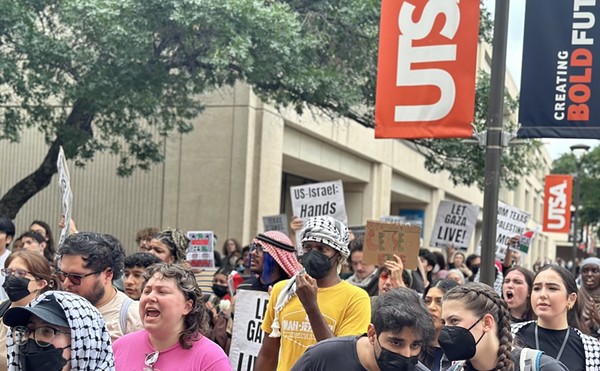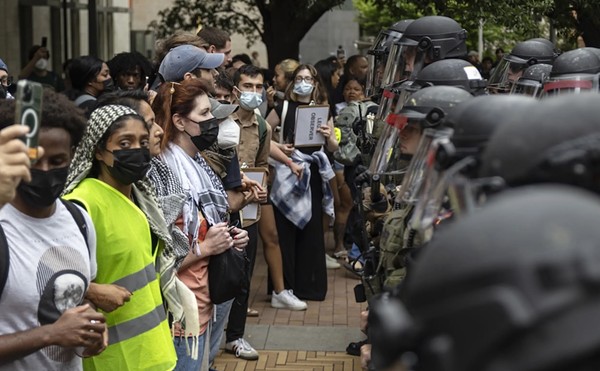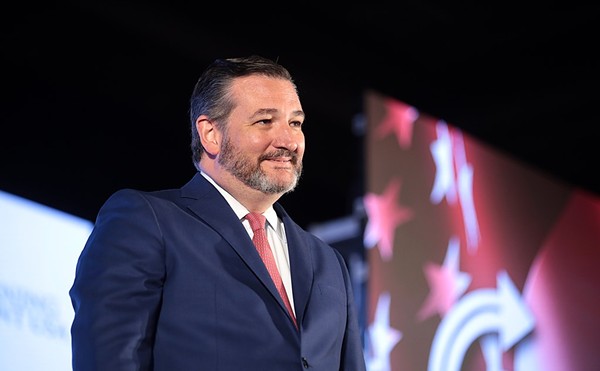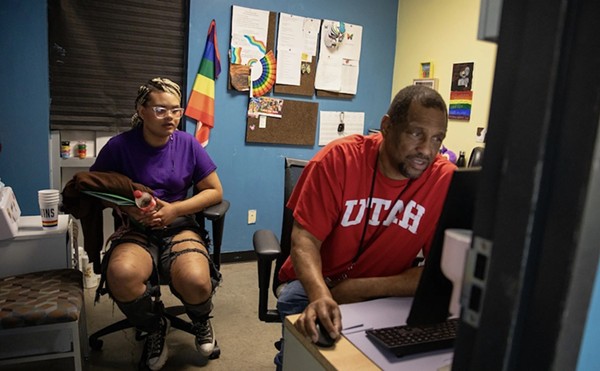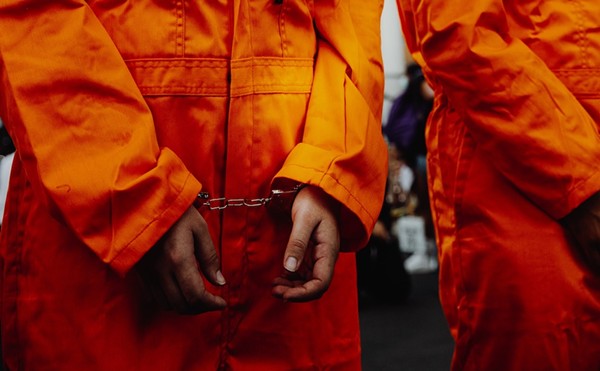I love my bulletin board. It’s the old-fashioned cork kind, and located outside my office door in Laurie Auditorium on Trinity University’s campus. I like to use thumbtacks and paper to post my ideas so those who come to performances can not only see my thoughts if they like, but touch them, too. Right now, there is a comic posted about vending-machine justice, another about ethics in the book-publishing industry, and a drawing by my 6-year-old daughter. Nothing too offensive, really. Just opinions. Art.
But visitors to the auditorium don’t seem to like my bulletin board so much. During a recent naturalization ceremony, a U.S. Citizenship and Immigration Services official strategically covered my American Society of Newspaper Editors poster, which reads “secrecy is the beginning of tyranny” with an official U.S. government sign. I say strategically because at least half of the board was empty, and still his poster was placed directly over mine.
A week or so ago, Trinity hosted rapper Chuck D. On each entrance to the auditorium, event organizers had placed signs reading: “Mature subject matter and adult language may be used.” The day after the speech, I found one of these signs had fallen just outside my office door. Seeing this as a sign (maybe literally) from the free-speech gods, and pretty humorous to boot, I posted it on my bulletin board.
Enter conference coordinators for February’s “The Truth Project” sponsored by Focus on the Family, a Christian ministry. Now, I may not agree with the beliefs articulated by Focus on the Family, but I strongly support their right to publicly speak about what they believe. They didn’t seem to have the same view of my rights, however. When I returned to my office the next day, there was my “adult language” sign … turned around … just a plain, red piece of paper now in view. It was not removed, as often is the case with my bulletin-board displays, but it was essentially deemed inappropriate.
This small act of censorship troubled me — not just because someone was silencing my speech, but even more so because historically religious organizations — and by extension those affiliated with religious causes — have been great champions of free speech in the United States. Understanding it is impossible to freely exercise one’s religion without the right to speak, such diverse religious voices as the Jehovah’s Witnesses, the United Church of Christ, the B’nai B’rith, and the United States Conference of Catholic Bishops have challenged censorship in the courts and media consolidation in federal-agency hearings.
In the 1940s, the Jehovah’s Witnesses undertook a systematic campaign to challenge local government ordinances that restricted their right to distribute literature door-to-door. By the mid-1950s, they had argued 19 cases before the Supreme Court, winning victories in 14. Because of the Witnesses, the right to distribute information of all kinds though any medium was secured. This right to distribute freely is more important now than ever. In an age of digital communication, suppressing distribution would essentially mean the end of global connectivity.
In 1963, the United Church of Christ convinced the Supreme Court that all citizens should have the right to participate in hearings before the Federal Communications Commission, not just those who own broadcast media. The case was significant, not just because it gave “average” citizens a voice in the halls of power, but also because it empowered them to speak out against those things they found unacceptable — in this case racist programming.
More recently, the Conference of Catholic Bishops was a participant in FCC hearings regarding the consolidation of media ownership. Fearing that the increased consolidation of broadcast media in the hands of fewer corporations would lead to the loss of channels now available for religious programming, the bishops were a vocal opponent of FCC efforts in 2003 to further deregulate media ownership.
While these cases may have originated from self-preservation, or at the very least self-interest, the decisions they produced expanded the breadth of First Amendment protections for all of us.
So, the next time you are on campus for a performance and are contemplating taking down my cartoons, step away from the bulletin board. It is in your best interest. And mine.
Jennifer Henderson teaches media courses at Trinity University. She gave a recent presentation at the university’s Food For Thought luncheon-lecture series entitled, “The Jehovah’s Witnesses and Their Plan to Expand First Amendment Freedoms.”







